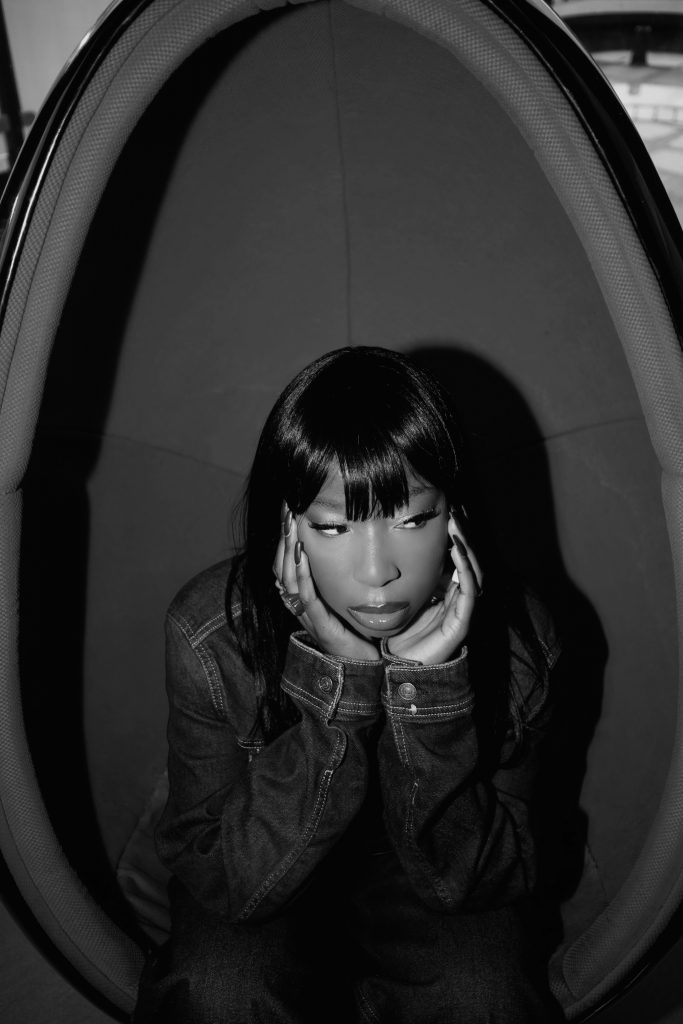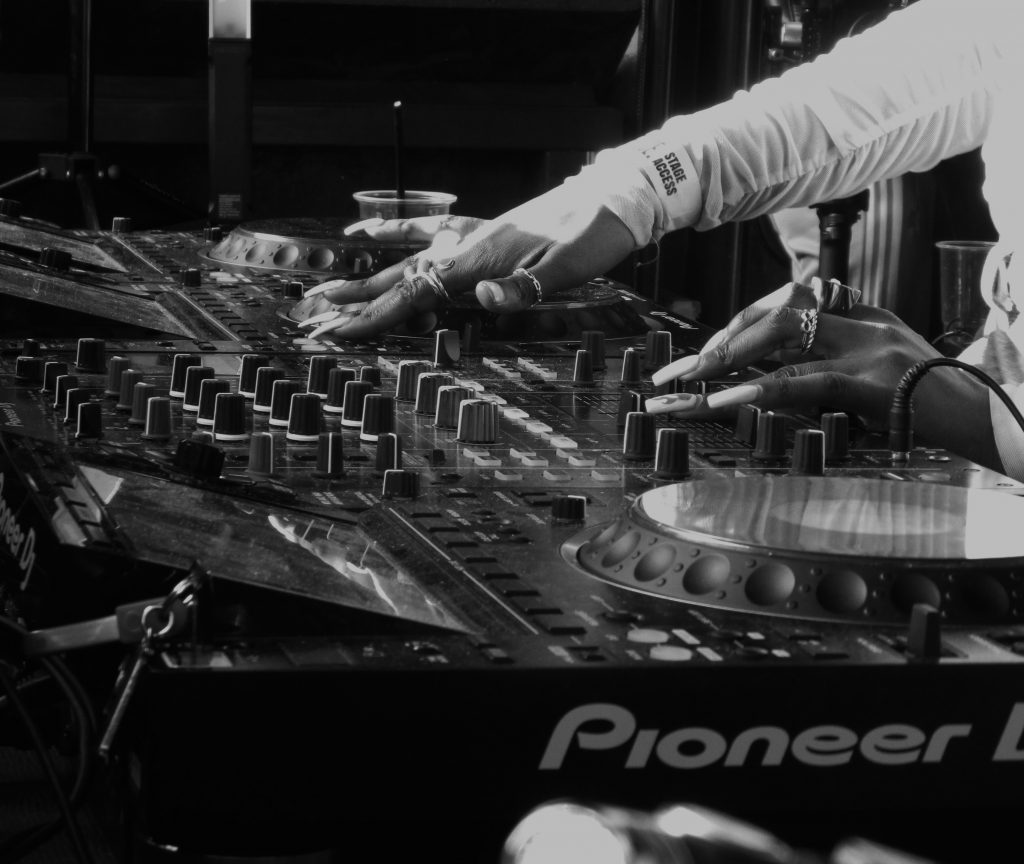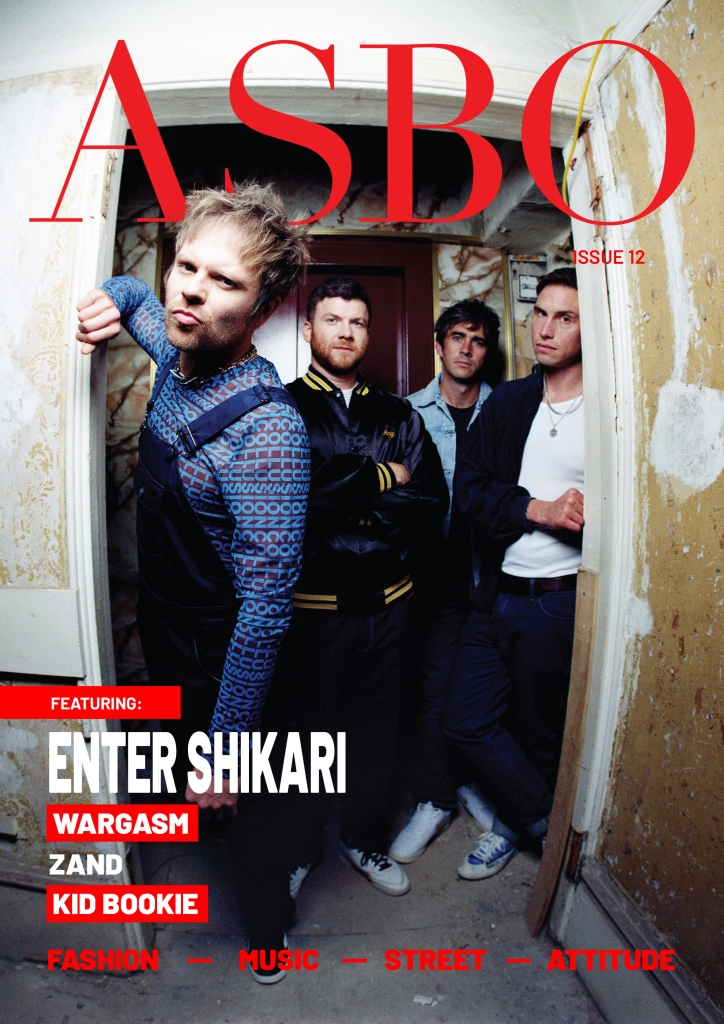Words: Theo Thompson, Images: Press Shots and Theo Thompson

For as long as she can remember, Tomike has loved to sing. Her earliest performances took place at her mother’s fashion shows and beauty pageants, where she would beg to take the mic. “I would obviously be really shit and embarrassing, but she’d always let me do it,” she recalls with a smile. Despite the nerves and early stage fright, those moments became the foundation. From successful talent shows to school musicals, Tomike gradually began using her voice beyond her bedroom, marking the quiet beginnings of what would later become a commanding artistic presence.

Today, Tomike is an established voice in the electronic and house music scene; a DJ, singer and producer who blends her neo soul roots with pulsating, club-ready rhythms. But her journey here was far from a straight line.
“I did a whole law degree,” she explains. “I think I just did that as an excuse not to do music because it was scary at the time.” When she finally leaned into her passion, she did so with purpose. “If I got a 2:1 in something I didn’t care about, what would it be like if I did something I loved?”
It was a leap of faith, moving from Dublin to the UK in 2022 without a fixed plan, trusting instinct over certainty. The shift from neo soul to electronic music was driven by a need for energy and movement on stage. “The music I was making was 95 BPM max… it felt limited,” she says. Her viral house debut ‘High Grade’ opened the floodgates, with tracks like ‘By The River’ pushing her further into a high-octane, genre-blending sound.

Jazz, however, remains the anchor. “Jazz is my root. It definitely has a huge persuasion on any genre that I’m in. I feel I will always have a huge jazz influence on whatever it is that I make.” From Kenny G and Anita Baker to Sade, the influence of her childhood sounds are present in every note.
In addressing the more challenging realities of the music industry, Tomike communicates with both clarity and intention; articulate, reflective and forthright. Though the conversation took place under the warmth of the afternoon sun, her insights remain grounded, offering a candid examination of the systemic issues that continue to shape her professional landscape.

“In house music, the shift is wild,” she says. “The person responsible for the lyrics gets less credit than someone laying down a four-by-four.” Her voice doesn’t waver, but there is weight behind her words. “A woman can write the whole track… and still be second credit, while a lot of producers just get a sample off Splice.”
It is an industry of which Tomike learning to navigate on her own terms. Before she began producing her own music, she says her creative suggestions were often dismissed. “Before I started going viral on TikTok with my own production, no one really wanted to hear it.” That dismissal sparked something deeper. “You can be used in this industry if you rely on other people.”
Self-reliance, then, is not just a strategy; it’s survival. And yet, Tomike remains generous. She praises collaborators who have genuinely listened from the likes of Joseph Ashworth to Silva Bumpa (Harry) along with others who respect her vision. “With Runnin’ I feel I bring my Irish influence on house while Harry brought his UK influence on bassline, it was a good blend.”

Still, her story is marked by the tensions that many Black women face in electronic spaces. “It’s a testosterone-infused industry… you’d be mad not to acknowledge that.” She recounts hearing Second City’s ‘I Wanna Feel’ as a teen and assuming Second City was the vocalist. “That was the only person credited… it’s so crazy that the singer often isn’t even named in tracks.”
Her response? Master your craft. “Just doing it myself got me far enough… I have so much trust in myself now.” That ethos is something she hopes will inspire others, especially the next generation of artists questioning their place in the scene. “It’s nice to have women behind you, regardless of all the other fuckery,” she says, nodding to the quiet but resilient network of female creatives pushing back against the industry’s norms.
Looking ahead, Tomike’s vision is clear and vibrant: more gigs, more production and always artistic consistency. “Everyone has their own sound… but it’s important to create something myself to build consistency.” She imagines herself somewhere warm “probably on a beach in Greece,” still creating, still building.

“There are still not enough females that are not constantly featured,” she adds in a final reflection. “It shouldn’t be the case where you have to speak up. It should just be done.” Her words linger, heavy with truth.
And yet, for all the challenges, there is an unmistakable lightness about her. A quiet power born not just of talent, but of perseverance. As our conversation comes to an end, there’s a moment of pause. She smiles. “I think my younger self would think I was a crazy bitch, but she’d be happy.”
The girl backstage at her mother’s show may not have imagined this exact path, but she would recognise the voice. Strong. Unapologetic. Clear.











